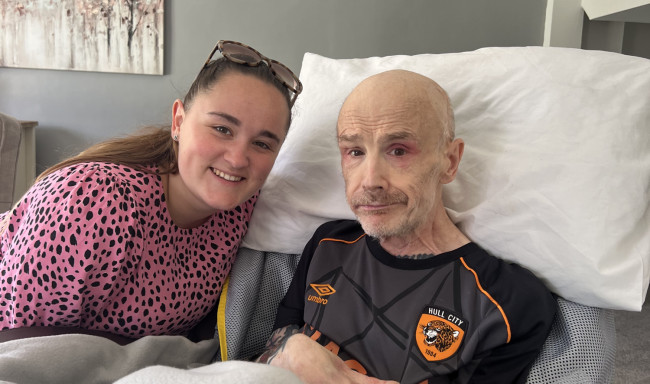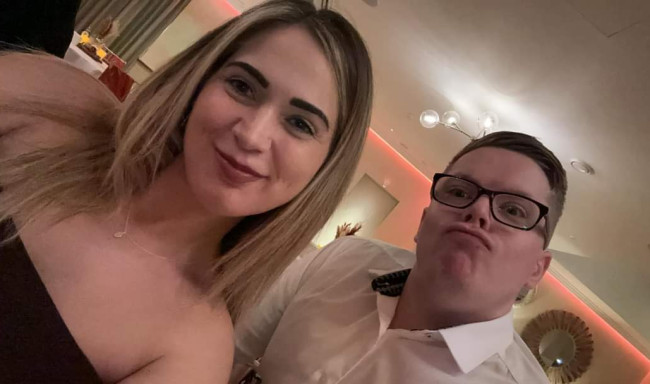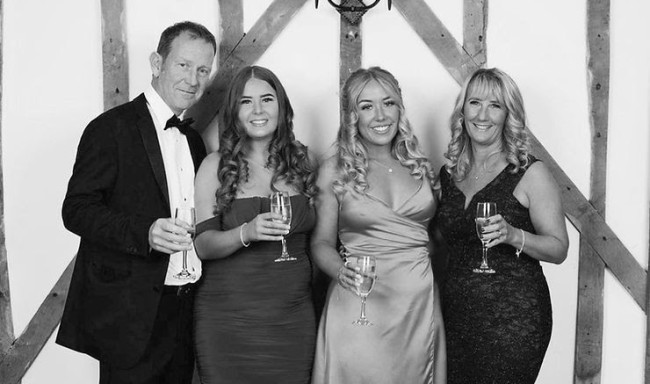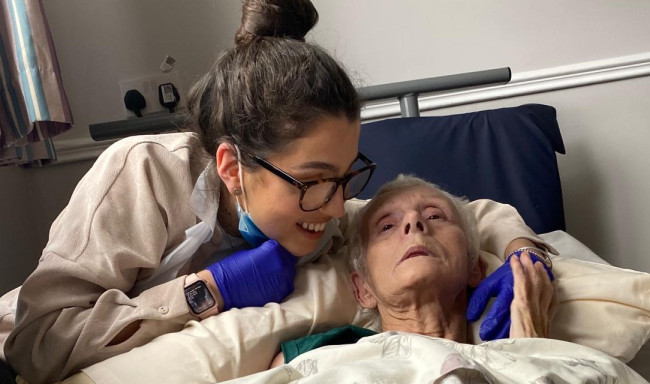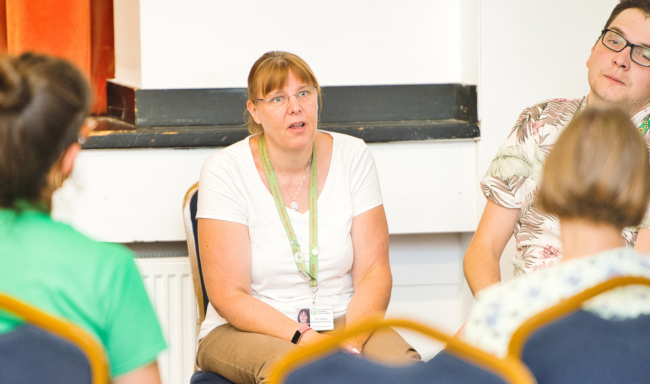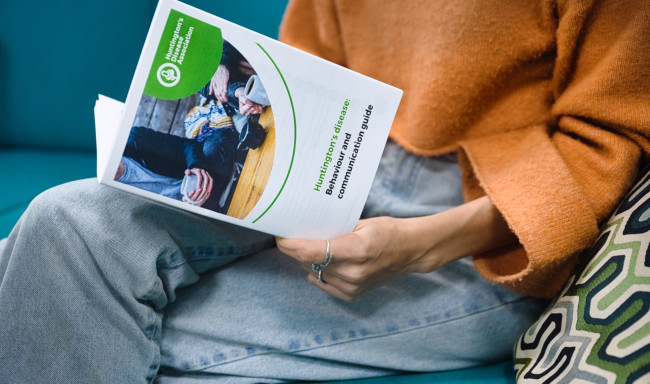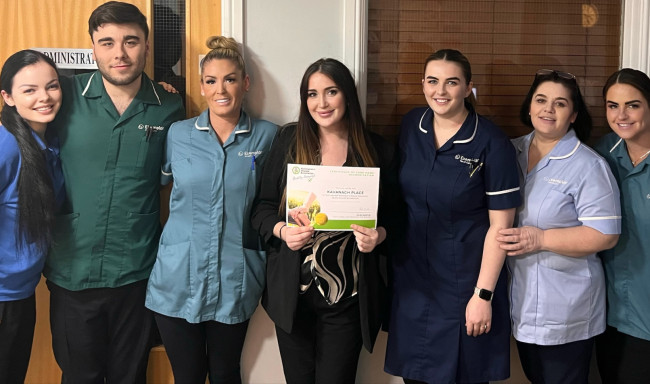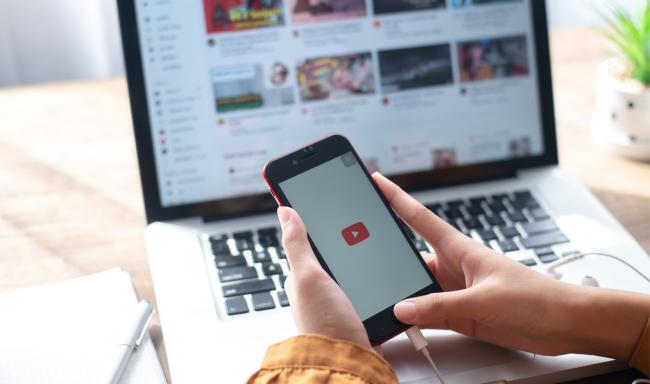A guest blog from a clinical psychologist who comes from a Huntington's family and wishes to share their story anonymously about how finding out they were at risk impacted their work.
A “flashbulb memory” is a vivid recollection of a moment in which we learned shocking or significant news. Commonly, they are described in context of dramatic, terrible events like 9/11 or the shooting of JFK. People still ask each other, “where were you when it happened?”. Readers can perhaps remember one or both of those events, depending on your age. I was at school when 9/11 happened; I remember the horror of seeing the second plane hit. It still chills me to think of it.
My most potent personal flashbulb memory has similar power over me. It places me in the busy health and beauty aisle of my local Sainsbury’s, about eight years ago. It was summer, bright and warm outside, and I was staring at rows of deodorant from inches away while I tried to have a private, life-changing conversation with my mum. I remember being eyeballed by a security guard, who perhaps thought I had nefarious designs on the Sure roll-ons. To be fair, I probably looked a little strange.
It was an odd time. My dad had been sectioned because he was staggering, confused, and violent. My mum was scared and tried to cope in secret, but the situation had gone beyond her power to manage. Dad wasn’t safe anymore, and neither was she. He was taken to hospital in an ambulance, then to a secure ward. He never came home.
This is a Huntington’s Disease Association article, so the twist in the tale won’t come as anything like the surprise it did to me: he was, of course, diagnosed with Huntington’s disease.
The trouble was, I knew what that meant. I’m a clinical psychologist; my specialism is working with people with neurological conditions. At the time of my dad’s diagnosis, I was actually working with people who had late-stage Huntington’s. (This will undoubtedly give away my identity to any friends who see this, because I can’t imagine there have been many others in that situation!) I didn’t, however, know that we had Huntington’s in the family, because that had been kept from me. During that phone call with my mum, she finally admitted that my gran had died of Huntington’s before I was born.
I’ve never felt anything like the despair, rage and hopelessness that hit me in one massive wave, standing under those loud fluorescent lights next to plastic tubes of deodorant and that one security guy who wouldn’t stop staring at me. I was furious with him. I was furious with my mum. I was furious at the unfairness of the world. And I grabbed the anger with both hands, because that was so much easier than despair. It was days until I managed to cry, once the anger started to simmer down.
The next few weeks were… weird. Being a healthcare professional, who works with people who have Huntington’s, speaks the language and knows how things work – it’s a double-edged sword. You know where to find answers. You can, within reason, have a bit more input into care and decision-making. But you also know what can’t be changed, and worst of all you get the terrible responsibility of deciding how much the rest of your family should know. I was paralysed by these questions. How much should I protect them? But is that patronising, or infantilising? And if I do tell them everything I know about what’s to come, then there’s no way to take it back. Clinical psychologists are a population of overthinkers, and boy was I ever living up to the label. The weight of self-assumed responsibility was crushing.
Obviously, as a mental health professional, I handled it all perfectly… well, I wish that were true. Ideally, I would have had time off work, had some therapy to process things a little, spent time with my friends and reminded myself what I valued in life. Actually, I went back to work the next day. I was a mess, but I battled through it (I’m wincing imagining any of my clients doing this now). I will never forget that one of the hospital carers spent her lunch break going to buy me sunflowers; they have been my favourite flower ever since because they remind me of her kindness in that dark time. Likewise I won’t forget my lovely supervisor, who really preferred not to ‘do feelings’, finding me sobbing in an empty office and giving me the most awkward hug in the world before dashing off to make me tea (tea fixes everything).
I left that job for another, not long after. I was so sorry to go, but I couldn’t support my clients with their Huntington’s-related struggles because I was drowning in my own. I wasn’t a good therapist for those few weeks before I left.
For years afterwards, I avoided working with people with Huntington’s. It was something I still really cared about and wanted to do, but now every contact with it threw me into a panic. I would sit and worry about when I would start to get the first chorea in my extremities – every random muscular twitch sent me into a spiral. Every time I felt blue or grumpy, I would wonder if it was the start of the emotional difficulties that come with Huntington’s. I was so, so scared.
I think it was when I took the decision not to get the genetic test, that I turned a corner. I was never very good at shades of grey (in my personal life, of course – I’m all about grey areas in therapy), and the idea of living with a giant question mark was terrifying. But it took a few months to get through the pre-test genetic counselling, and as time meandered on, I started to do some of the things I should have given myself time for sooner. I started to process. I started to do the things I loved again. I reached out to my friends, and found acceptance and love and support. And I started to realise that I didn’t need to know if Huntington’s was coming for me, as long as I was living my life as fully and well as I could for now.
I’m still learning to live with being at risk of Huntington’s. I definitely don’t want to suggest that I had some grand epiphany and then everything was fine – I oscillated wildly back and forth between anger, grief, fear and acceptance for years, and I still do. And the decision not to test was only the right one for me, not necessarily for anyone else. But in a very odd way, for a clinical psychologist, this is like having the world’s worst superpower.
Lately I’ve returned to working with people with neurodegenerative conditions, and even very tentatively to working with people with Huntington’s, and I have a level of compassion and understanding beyond what I had before. People tell me their fears, thoughts and memories, and in them I recognise myself and my family.
As a clinical psychologist I’ve had to work hard to tamp down those responses in the moment because therapy is not about me but about my client. But I have always believed that having experienced your own challenges makes you a better, kinder therapist, and I’m quietly happy with the revelation that in my own difficult circumstances, I think that has been true.

